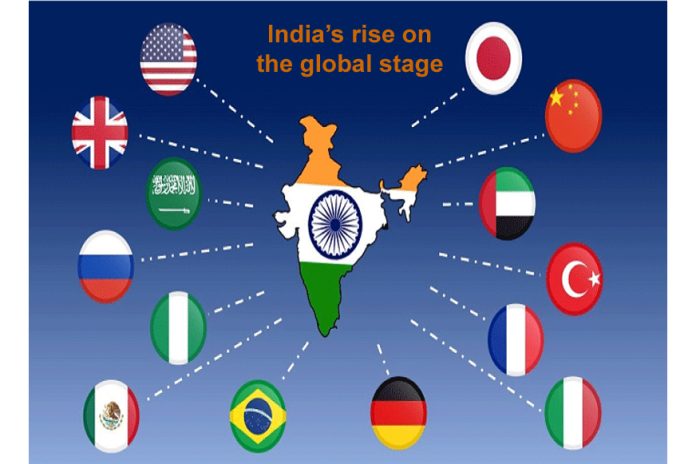India, a nation long regarded as a sleeping giant, is awakening to its potential, surging towards becoming a global powerhouse under the stewardship of visionary leadership and transformative policies. The Vice President’s recent address at the valediction ceremony of the 76th batch of the Indian Revenue Service in Nagpur serves as a poignant reminder of India’s journey.
The transformation is not merely rhetorical; it is palpable in the tangible strides India has made on the global stage. As the VP highlighted, India’s emergence as the voice of the global south during its G-20 presidency is emblematic of its newfound stature. The nation’s economic prowess, coupled with its demographic dividend, amplifies its influence on the world stage. India’s economy, once dwarfed by its European counterparts, now outpaces them, symbolising a remarkable economic ascendance. Central to India’s trajectory is its embrace of technology. VP’s emphasis on leveraging technology to combat corruption and enhance transparency resonates deeply in the digital age. By minimising cash handling and promoting digital transactions, India mitigates opportunities for malfeasance while fostering a more equitable and efficient economy. Such initiatives not only disincentive corruption but also foster an ecosystem of accountability and trust.
Moreover, India’s tax reforms exemplify its commitment to fostering a conducive business environment. The transformation of tax collectors into facilitators reflects a seismic shift in governance philosophy. Timely refunds and streamlined processes not only alleviate the burden on taxpayers but also bolster investor confidence, positioning India as an attractive destination for global investment.
Corruption has long been a hurdle to India’s full potential. It stifles economic growth, discourages foreign investment, and erodes public trust. Dhankhar’s assertion of a paradigm shift, with corruption leading to jail instead of opportunity, is a welcome change. However, dismantling entrenched systems takes time and unwavering commitment. Several initiatives offer hope. The RTI empowers citizens to access Government information, a powerful tool against opacity. Additionally, institutions like the Lokpal aim to investigate and prosecute corruption. These efforts, coupled with technological advancements that promote transparency, can significantly weaken corruption’s hold.
India’s economic rise is nothing short of remarkable. From a nation struggling to meet basic needs, it has emerged as the world’s fastest-growing major economy. This transformation can be attributed to several factors. Sound policymaking plays a crucial role. The government’s focus on infrastructure development, digitalization, and promoting foreign investment has created an environment conducive to business growth. Additionally, initiatives like “Make in India” aim to boost domestic manufacturing. Visionary leadership is another key ingredient. Strong leadership provides direction, fosters stability, and inspires confidence in investors.
Despite the progress, India’s journey is far from over. Per capita income remains a concern, with millions still grappling with poverty. Upgrading infrastructure and enhancing skill development are crucial to sustaining economic growth and improving living standards. On the other hand, the fight against corruption requires constant vigilance. Strengthening anti-corruption institutions, ensuring swift and effective prosecution of cases, and fostering a culture of integrity within the bureaucracy are essential steps.
India’s ascent is not solely economic; it is also rooted in its embrace of democratic principles and inclusive growth. By championing democratic values and upholding the rule of law, India solidifies its standing as a bastion of stability and progress in a tumultuous geopolitical landscape. India’s rise presents exciting possibilities. It has become a beacon of hope for developing nations.


